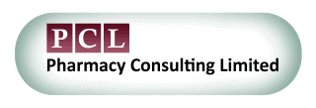When operating a pharmacy, the General Pharmaceutical Council (GPhC) will come and inspect you against the pharmacy standards, do you know what evidence you will need to present to demonstrate how your pharmacy adheres to the standards?
This blog is the second in a 5-part blog series which will look at each principle in turn.
An outline of the standards for each principle is available on the GPhC website. All words in Italics have been taken directly from the document hyperlinked.
This blog will focus on the standards associated with Principle two – Staff are empowered and competent to safeguard the health, safety and wellbeing of patients and the public.
The overarching purpose of this principle is to ensure that the pharmacy has enough competent personnel to ensure the pharmacy services that are provided protect the health, safety and wellbeing of patients and the public. All personnel should be sufficiently trained or enrolled on an approved course with adequate supervision. The GPhC has additional guidance on ensuring a safe and effective pharmacy team.
How do you as a pharmacy, evidence this in an inspection?
There are six standards associated with the staffing principle. In this blog, we will take each in turn providing examples of evidence you could present to address the standard.
Standard one: There are enough staff, suitably qualified and skilled, for the safe and effective provision of the pharmacy services provided.
This is a standard of resource versus workload of the pharmacy. This will vary significantly from pharmacy to pharmacy. An assessment of the risk is required to clearly demonstrate that you understand the services you provide, and the skill mix required to provide this safely and effectively. From this you need to extend the evidence further by creating a staffing rota which considers the requirements of the pharmacy at various times of the day including any services you offer at specific times such as a travel health clinic or NHS flu clinic which will require the pharmacist. A business continuity plan or contingency plan for staff absence, planned or unplanned, long or short term should be in place not just for the responsible pharmacist but for all staff across your staffing matrix.
Staffing levels should be actively reviewed to ensure the skill matrix required is maintained to ensure the continuity of safe and effective services. This review should consider workload adjustments, changes in service, concerns raised, near misses and error recording as well as feedback received. A thorough review may also highlight staff members who require additional training to maintain their suitability. Any review conducted should be fully documented.
Standard two: Staff have the appropriate skills, qualifications and competence for their role and the tasks they carry out or are working under the supervision of another person while they are in training.
This standard is based around ensuring all staff in place have the right educational basis to provide the pharmacy services safe and effectively or are working towards the right qualification under supervision. Individual training plans should be created to ensure that each individual keeps their knowledge and skills up to date. These should be regularly reviewed with the individual through 1 to 1’s and appraisals to ensure they continue to accurately reflect the pharmacy’s requirements.
All staff should have had a role specific induction, training in relevant Standard Operating Procedures and enrolled onto suitable training courses if required within three months. A period of supervision should be carried out and their competency assessed prior to them working autonomously. Records of which should be maintained for audit traceability. Ensure the training courses have been pre-assessed so you make the right decision on the most appropriate training course for your staff.
Staff should feel empowered to report back on their own performance and recognise areas that require improvement. They should be actively encouraged to maintain their learning and development to keep their skills and knowledge up to date. They should feel supported by all management that they can focus on their learning and development.
Remember you should have competently trained personnel for all the services you provide. For example: if you are providing a travel health service using Patient Group Directions, training you would expect to see may include:
- PGDS
- SOPs or protocols for running the service
- the system used to record patient attendance and treatment recording
- Emergency first aid including anaphylaxis, using autoinjectors and oxygen
- Safeguarding
- Consent
- FGM
- Injection training
- Travel health training at the very least representing the travel health documentation intended to be utilised for identifying whether a patient is indicated for a certain vaccine.
Standard three: Staff can comply with their own professional and legal obligations and are empowered to exercise their professional judgement in the interests of patients and the public.
The way in which you operate your pharmacy should not contravene your staff member’s ability to use their own professional judgement or their legal obligations. This includes the SOPs and processes.
You need to ensure incidents, errors, interventions and near misses are recorded and acted upon. Any key learnings are communicated back to all staff members so they can prevent future occurrence this promotes continuous improvement. Furthermore, there shouldn’t be undue retribution for a staff member who chooses to refuse based on their professional judgement.
Standard four: There is a culture of openness, honesty and learning.
Does your staff actively report near misses, errors, feedback and concerns? Do they know they can report without fear of retribution? Empowering your staff to ensure they can report openly knowing it will be used to continuously improve the service provided rather than chastise or reprimand.
Learning is easy to evidence by ensuring key learnings are openly discussed in an open forum and the meetings are documented. Furthermore, providing staff the opportunity to learn and develop by provided dedicated time to their personal education is another way to evidence that you as a pharmacy owner are encouraging a learning culture.
Openness and honesty are predominantly evidenced through inspector and staff interaction, therefore, the easiest way to evidence this, is to promote an open and honest culture so when your staff are questioned they promote your own culture.
Standard five: Staff are empowered to provide feedback and raise concerns about meeting these standards and other aspects of pharmacy services.
Does your team know who they can raise a concern to within your organisation or the wider community? Do you actively encourage them to provide feedback? Negative or positive without retribution? Knowledge and confidence is key here! Your staff should feel empowered to raise a concern about quality of services provided especially if it is connected to patient safety.
Easy to answer yes to this question, harder to evidence…
The easiest way to evidence this, is to record everything, near misses, dispensing errors, incidents, feedback and concerns, ensure they are all documented, investigated, assessed and where necessary identified corrective or preventative measures implemented and communicated back to the team. This will encourage Standard four and five as it empowers your staff to report as they can see that the matter will be taken seriously and will be acted upon. Furthermore, it provides a perfect opportunity for all staff members to learn from past errors, provide feedback and ask questions.
Standard six: Incentives or targets do not compromise the health, safety or wellbeing of patients and the public, or the professional judgement of staff.
Any incentives or targets that you choose to implement must not cause a deterioration in the service you are providing. Therefore, hard sales targets or incentives against certain products especially if Pharmacy only medicines would not be recommended. Does your pharmacy require help to maintain compliance to principle two? Contact us to today for a no obligation quote to carry out a benchmark audit of your services.

